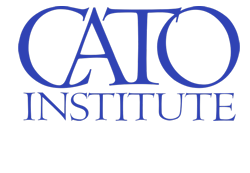Andrew M. Grossman
Andrew M. Grossman
Don’t say that debanking is back, because it never went away. But with close allies of the new administration focused on the issue, reform may finally be in the offing. Three basic steps are needed, the first two of which can be done in no time at all: (1) block regulators from pressuring financial providers to drop disfavored customers; (2) require government officials to report and publicly disclose actions targeting protected speech and association; and (3) dial back anti-money laundering law, “the world’s least effective policy experiment.”
Credit venture capitalist Marc Andreessen for putting debanking in the spotlight. If his aim was to raise awareness by bringing it up in a discussion with Joe Rogan and a series of X posts, then it worked. The minor backlash of doubters prompted a wave of start-up founders, crypto enthusiasts, and others with…interesting (but lawful!) financial situations to share their experiences.
It’s harrowing stuff: credit cards and ATM cards all going dead at once, losing access to one’s own money with no way to pay the bills, purposefully vague termination letters and refusal to explain, and the fear that speaking out will make one permanently unbankable. The experience is a bit like being “unpersoned” in a party-state or getting caught up in the “social credit” systems of science fiction or, as some have it, current-day China.
But it’s the United States, and we’ve been doing this for a while. It began with the rise of anti-money laundering law, which gradually transformed banks and other financial institutions into pawns of the state. That coincided with the proliferation of financial regulation and supervisory regulators’ expanding power and discretion over their charges. It speaks well of human nature, or poorly of bureaucrats, that it still took another decade or so for regulators to realize what they had: unchecked power to debank practically anyone. » Read More
https://www.cato.org/blog/how-tackle-debanking-day-one-beyond





